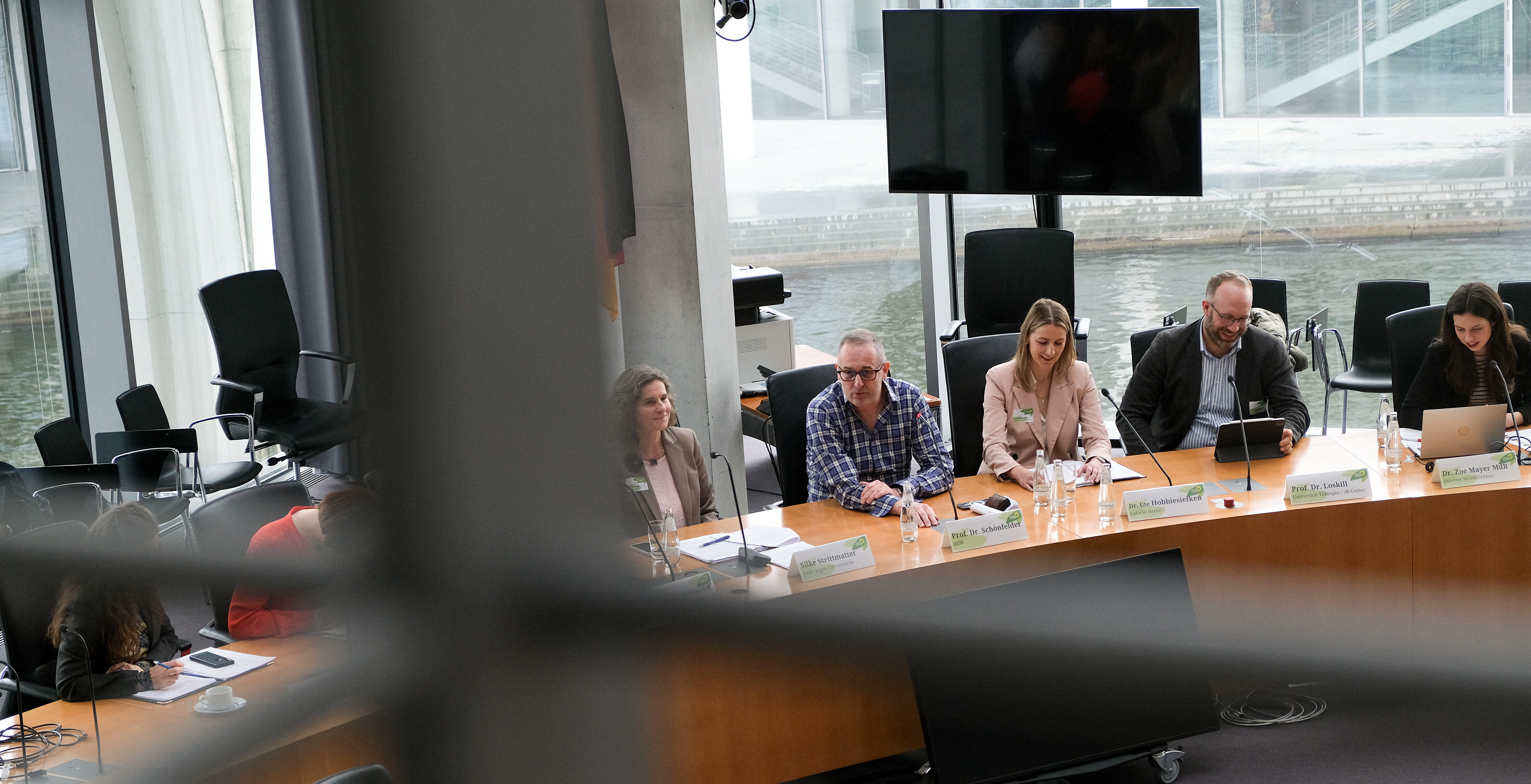Expert discussion in the Bundestag: Peter Loskill talks about reducing animal testing
How can animal testing be reduced, how can the suffering of animals be alleviated? The topic is highly emotive, and the coalition agreement of the German governing coalition has set itself the goal of introducing a reduction strategy. Last Friday (22 March), the Bündnis 90/Die Grünen parliamentary group in the Bundestag invited experts from politics, authorities, industry, non-governmental organizations and science. Among the discussion partners was Peter Loskill, who is researching alternatives to animal testing at the NMI and the University of Tübingen's joint 3R Center.
More support for alternative methods
"The core of a reduction strategy must be support for the development, qualification and implementation of innovative alternative methods," was Loskill's most important message. This support must be offered in a targeted manner and with a long-term perspective. "We need more specific infrastructures to give scientists access to and training in alternative methods," demands the professor at the University of Tübingen's Faculty of Medicine. Peter Loskill sees great potential for savings in basic biomedical research in particular.
Loskill's conclusion: Ultimately, the individual areas in which animal models are currently used must be considered separately. They each offer very different potential for reducing animal testing and require precisely fitting programs.
About the 3R-Center Tübingen:
The 3R Center Tübingen for In Vitro Models and Animal Alternatives is actively involved in the three areas of "Education, Training & Consulting", "Research" and "Science Communication & Public Relations" to promote state-of-the-art replacement and complementary methods to animal experiments and to advance their consistent application. It supports (young) scientists in (bio)medical research and the pharmaceutical industry in integrating human microphysiological systems, such as organ-on-chip and organoid models, into their processes and thus reducing the number of unavoidable animal experiments to a minimum. At the same time, the 3R Center advises political decision-makers. As part of the 3R Network Baden-Württemberg, the 3R Center Tübingen has been jointly supported by the Faculty of Medicine of the Eberhard Karls University of Tübingen and the NMI Natural and Medical Sciences Institute in Reutlingen since its foundation in 2020.
Further information on the website of the 3R Center, the X-Channel and the LinkedIn profile.






